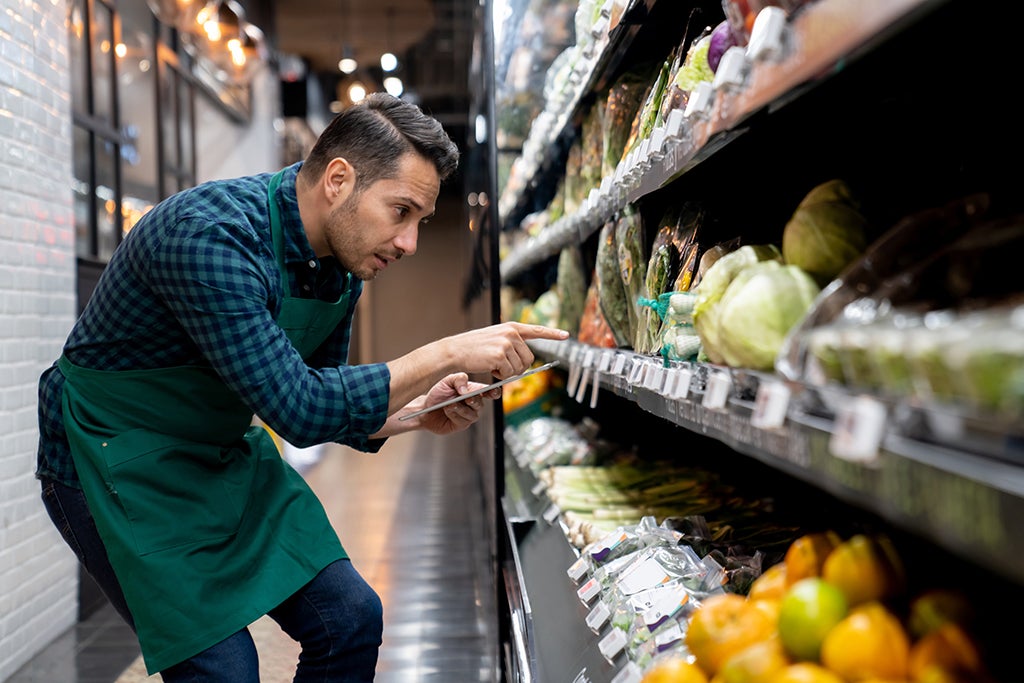What you need to know about FSMA 204
Imagine you’re running a natural food store, filled with organic produce and specialty items your customers love. Business is going well, but as you look ahead, you see the Food Safety Modernization Act (FSMA) mandates coming into effect in 2026. These new FDA rules aim to transform food safety and traceability across the supply chain. Non-compliance with these regulations could lead to fines or other penalties that jeopardize your business. Do you feel prepared?
Navigating these new requirements might seem overwhelming, but with the right guidance, you can tackle them head-on. This guide will outline what the FSMA requirements mean for your stores and how to start preparing now.
What is FSMA 204 and why is it important?
FSMA 204 is part of the Food Safety Modernization Act, which focuses on food safety and traceability. By 2026, everyone in the food supply chain—from growers to retailers to distributors—must provide traceability records for products on the Food Traceability List in case of a recall. According to FDA guidelines, these records must be available within 24 hours.
What are critical tracking events and key data elements?
Critical tracking events (CTEs) and key data elements (KDEs) are crucial for FSMA 204 compliance. CTEs are points in the supply chain where companies must establish traceability to ensure food safety. Important CTEs include:
- Shipping: Maintain records of where products are going, who’s handling them and their expected arrival.
- Receiving: Document what products you receive, including batch or lot information and the supplier’s details.
- Transformation: Record details about any event that changes the state of the food, like repackaging or relabeling.
KDEs are specific data points you must record at each CTE to maintain traceability. Examples of KDEs include traceability lot codes, quantity and unit of measure of the food produced and transporter name.
What are the specific challenges of FSMA 204 compliance for natural food retailers?
Natural food retailers face unique challenges in meeting FSMA 204 requirements. They often deal with a diverse range of products from various suppliers, each with different methods for tracking and sharing information. This can make standardizing traceability efforts difficult. The need for meticulous documentation and quick reporting can also strain limited resources.
How can small to mid-sized retailers begin their compliance journey?
Get started with these key steps:
- Understand the requirements: Get familiar with FSMA 204 mandates and the specific CTEs and KDEs relevant to your operations.
- Document CTEs and KDEs: Begin tracking and documenting each CTE and KDE in your supply chain. This means keeping detailed records of shipping, receiving and transformation events, such as repackaging or relabeling.
- Develop a traceability plan: Create a plan that outlines your procedures for keeping records, identifying foods on the Food Traceability List, assigning lot codes and establishing points of contact for traceability.
Options for achieving compliance
Retailers have a few options for implementing traceability methods:
- Manual methods: You can start with spreadsheets and emails. This is a quick but labor-intensive approach that may be hard to scale.
- Traceability software: Consider using software solutions that provide portals for data input. These can simplify the process but may come with adoption hurdles and additional costs.
- EDI solutions: Many retailers use Electronic Data Interchange (EDI) systems. These are powerful tools for FSMA 204 compliance. Make sure your EDI systems support the required KDEs.
Why starting now matters
Although FSMA 204 won’t go into effect until 2026, procrastination isn’t an option. Time is of the essence, and delaying preparations could jeopardize your compliance. Starting now will make the requirements much easier to meet.
FSMA 204 compliance is a significant task, but it’s manageable with the right approach. By understanding the requirements, documenting CTEs and KDEs and choosing the right traceability methods, you can prepare your business for the 2026 deadline.
Partnering with an experienced provider like SPS Commerce can help you navigate these challenges. SPS offers solutions tailored to your needs—whether working with existing systems or integrating cloud technology. Start your compliance journey today and contribute to a safer, more transparent food supply chain.
- How smarter, simpler ordering can boost sustainability for grocers - June 14, 2024
- What you need to know about FSMA 204 - June 3, 2024
- 4 Ways Independent Grocery Retailers Can Benefit from In-Aisle Ordering - June 22, 2022

RELATED POSTS
How brands can prepare a successful p...
How to tame volatile manufacturing su...
How to build an agile supply chain in...